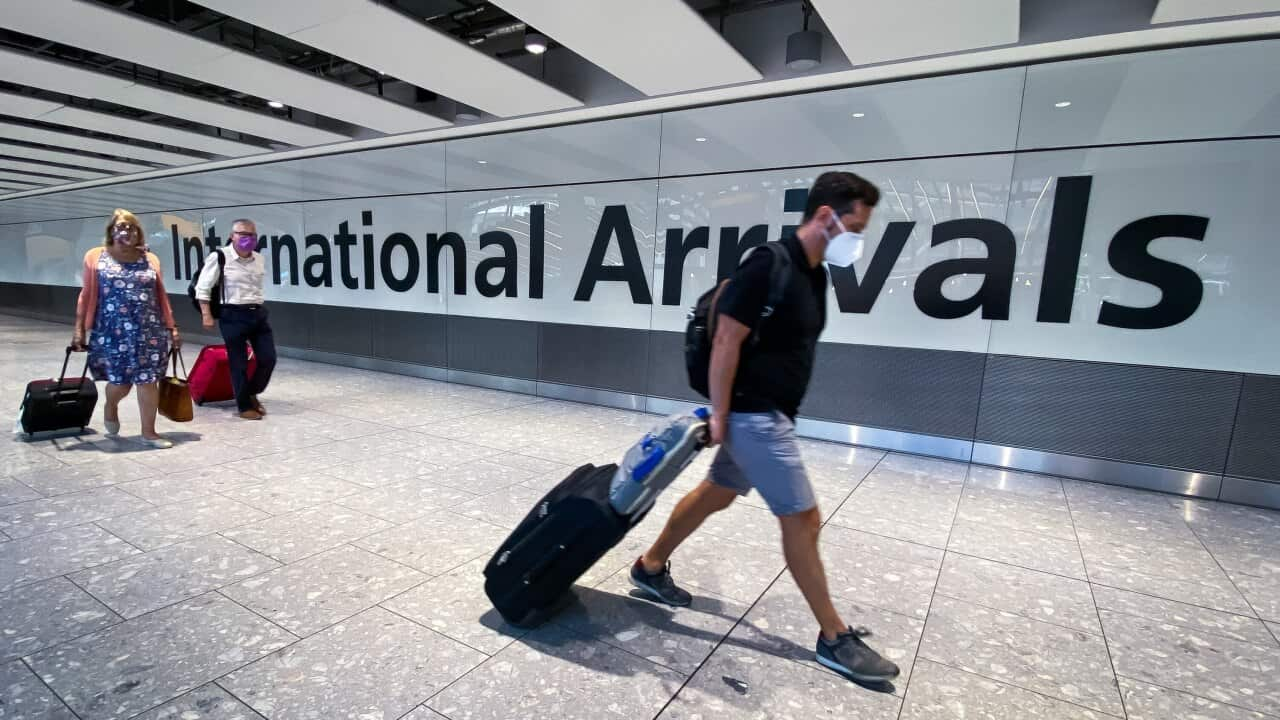The federal treasurer is warning Australia's states against overreacting to the new Omicron variant of COVID-19.
"The Omicron variant is a reminder of the challenges we face but states need to keep calm and carry on," Josh Frydenberg told reporters on Saturday.
In a positive sign for the economy, Mr Frydenberg said business investment was at its strongest since the mining boom a decade ago.
Next week's Mid-Year Economic and Fiscal Outlook will show that investment is up 16 per cent.
Non-mining investment will reach its highest recorded level - $200 billion.
However, the treasurer said the post-pandemic economic recovery depended on states staying the course on reopening.
While the health implications of the new variant are still being figured out, Mr Frydenberg said the early signs were reassuring.
"The virus is certainly highly transmissible but perhaps not as severe as other variants," he said.
He said high vaccine rates mean states should be able to avoid extreme measures like lockdowns and border closures.
The federal government is focused on reopening borders to international students and other visa holders, after delaying the move by two weeks.
It's also extended COVID-19 biosecurity measures governing controls around who can enter and leave the country until February 17.
They allow the continuation of mandatory COVID-19 testing for people wanting to fly into Australia as well as mask-wearing on international flights.
The rules also cover restrictions on international arrivals from high-risk countries, unvaccinated Australians wanting to go overseas, and controls on cruise ships.
"The human biosecurity emergency period ensures the appropriate legislative powers are available to the Australian Government as further information is gained and understood about Omicron, as well as to protect vulnerable communities in Australia," federal Health Minister Greg Hunt said in a .
Mr Frydenberg's comments come after Chief Medical Officer Paul Kelly advised national cabinet it was still early days for Australia's understanding of the Omicron variant.
Leaders agreed to continue considering international border settings consistent with a suppression strategy and as more evidence emerges about Omicron's severity and transmissibility and the efficacy of vaccines against it.
Meanwhile, cases continues to rise in NSW. The state reported 560 new infections on Saturday, the highest in two months. Three people died.
Victoria announced 13 new virus deaths on Saturday although seven occurred in November and their reportage represented an amendment to existing data. The state's infection tally of 1,193 was the sixth in a row of more than 1,000.
Eleven more people were diagnosed with COVID-19 in the ACT, taking the total number of active cases there to 76. South Australia reported six local cases and Queensland and the Northern Territory one each.
NT Health Minister Natasha Fyles says new restrictions have been imposed on the small communities of Barunga and Beswick near Katherine after the virus was detected in wastewater.
A 72-hour mask mandate will be imposed in Barunga. A lockout will apply to people in Beswick, where the vaccination rate is lower at 64 per cent.
Alice Springs residents have also been asked to be on high alert after a wastewater detection.
Australia's 16-plus full vaccination rate sits at 88.9 per cent.
More than two million children aged between five and 11 will be eligible for Pfizer shots from January 10.
Australia's immunisation advisory body signed off on giving younger children a Pfizer dose one-third of the usual strength.
Jabs will be spaced eight weeks apart for under-12s and bookings will open in late December.



